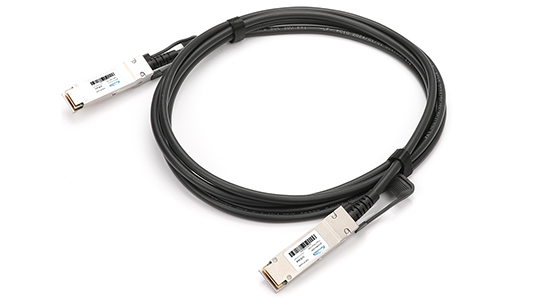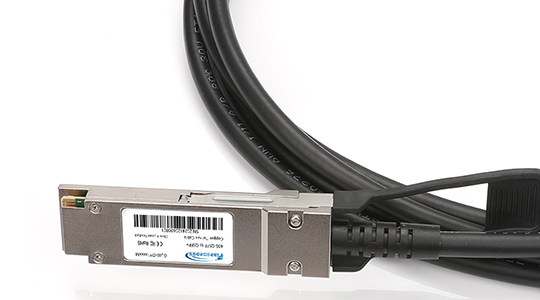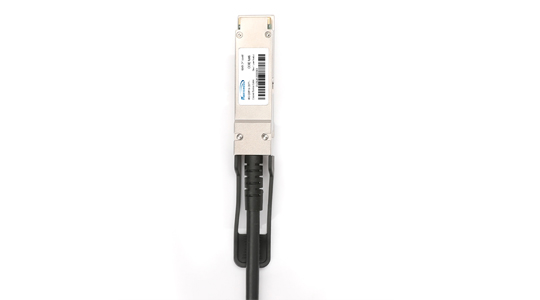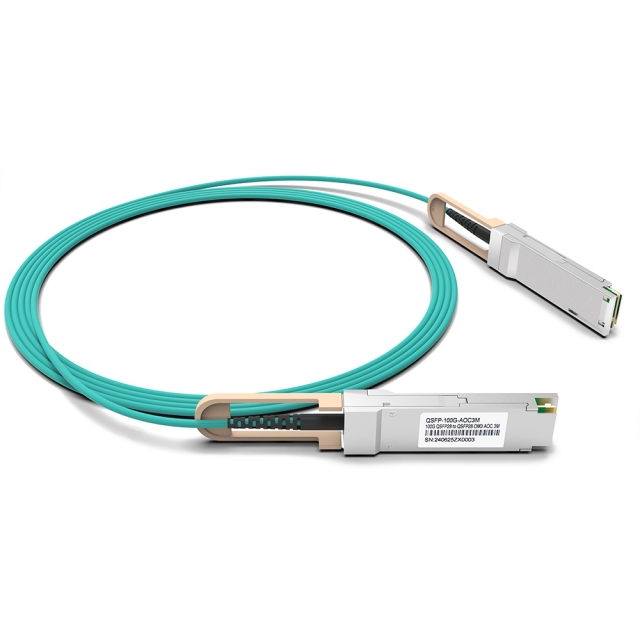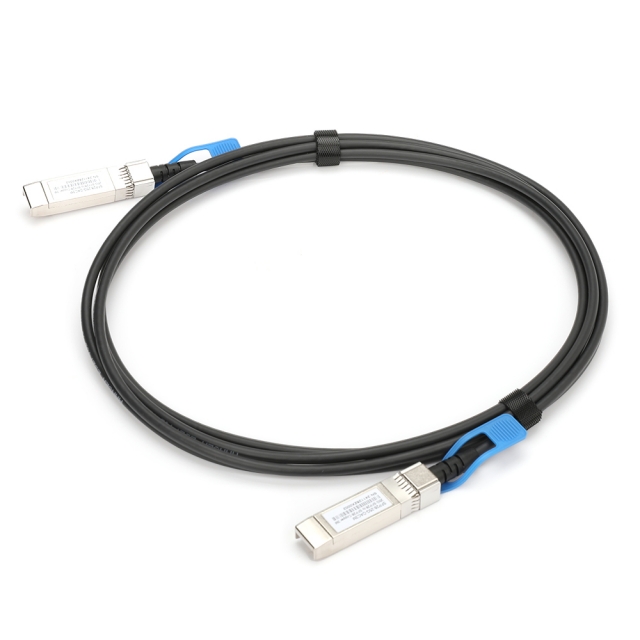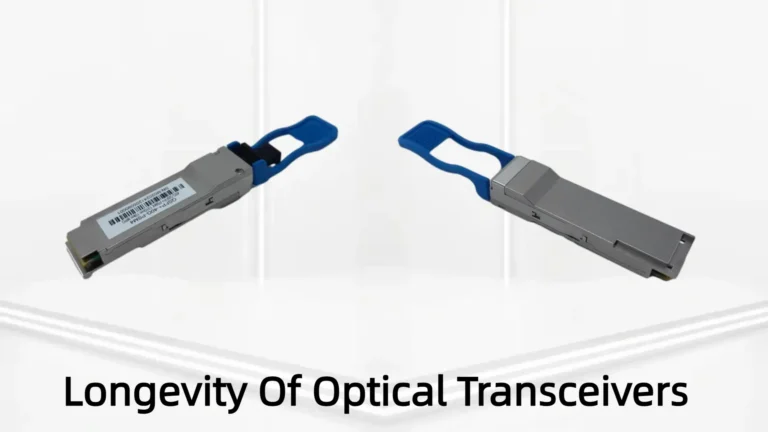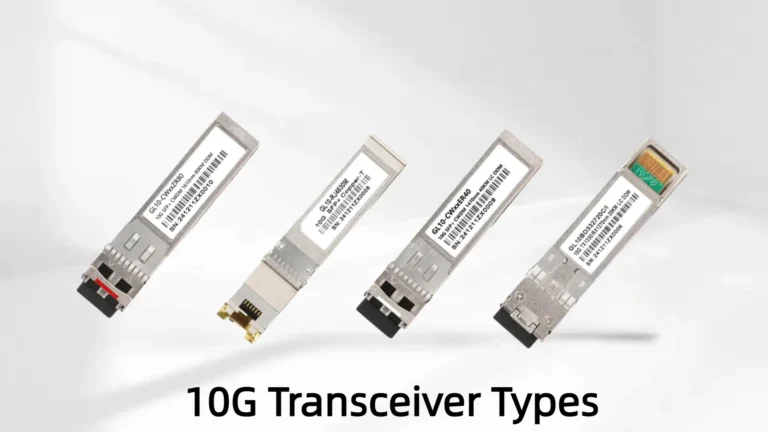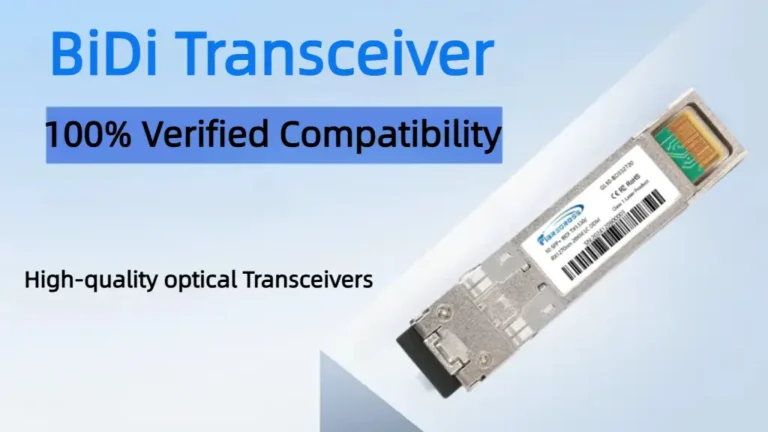10G SFP+ Direct Attach Cable (DAC)
10G DAC (Direct Attach Cable) cable is a copper-based high-speed connection cable, mainly used for data transmission over short distances. It connects directly to device ports via integrated SFP+ connectors at both ends, eliminating the need for an optical-to-electrical conversion, thus simplifying the connection process and improving the stability and reliability of signal transmission. These cables are typically used for short-distance interconnections within a rack or between neighboring racks, with a maximum transmission distance of 7 meters.
| Part Number | Product | Data Rate | Length | Temp |
| GL10-DY130xxM | 10G SFP+ to SFP+ DAC | 10Gbps | 0.5~5m | 0~70 ℃ |
| GL10-DY124xxM | 10G SFP+ to SFP+ DAC | 10Gbps | 5~7m | 0~70 ℃ |
- Typical Application Scenarios
- Features
Top-of-Rack (ToR) switch-to-server connections
End-of-Row (EoR) aggregation setups
High-performance computing (HPC) clusters
Enterprise and campus network cores
- Up to 10.3125 Gbps data rate
- Up to 7meter transmission
- Compliant with SFF-8472.
- Temperature Range: 0~ 70 °C
- RoHS compliant
Why Choose Fibrecross
Source Manufacturer with Factory Pricing: Produced in our own ISO-certified factory, ensuring high quality and cost-effective prices.
Strict Quality Control: Every cable undergoes thorough testing for signal reliability and durability.
Quick Turnaround: Efficient production and worldwide shipping guarantee fast delivery.
Tailored Solutions: Flexible OEM and ODM services including customized lengths, colors, and branding options.
10G DAC VS 10G AOC: Which One is Right for You?
| Feature | 10G DAC Cable | 10G AOC Cable |
|---|---|---|
| Medium | Copper | Fiber Optic |
| Typical Reach | Up to 7m (Passive), 10m (Active) | Up to 100m |
| Power Consumption | Lower (Passive ~0W) | Higher |
| EMI Resistance | Lower | Higher |
| Cost | Lower | Higher |
| Flexibility | Stiffer | More flexible |
| Use Case | Rack-level | Inter-rack, EMI-sensitive environments |
👉 Recommendation:
Choose 10G DAC for cost-sensitive, short-distance connections like server-to-switch in the same rack. Choose 10G AOC when longer distances and EMI immunity are required.
FAQ About 10G SFP+ Direct Attach Cables
A 10G DAC (Direct Attach Copper) cable is a twinaxial copper cable with SFP+ or QSFP+ connectors, used to connect devices like switches and servers in data centers. It seems likely that these cables are popular for their affordability and reliability over short distances, typically up to 10 meters.
✅ SFP+ to SFP+ interfaces
✅ Available in 0.5m to 7m lengths
✅ Passive and active versions✅ Plug-and-play with zero configuration
✅ Low power consumption (<0.5W)
✅ EMI shielding for reduced interference
Selecting the appropriate 10G DAC cable involves several considerations:
Cable length: Available from 0.5 to 10 meters; choose based on the distance between devices.
Connector types: Ensure compatibility with your equipment, typically SFP+ or QSFP+ connectors.
Device compatibility: Verify the cable works with your specific switches, routers, or servers by checking manufacturer specifications.
Passive vs. active: Passive cables are suitable for shorter distances (up to 7 meters), while active cables support slightly longer reaches with signal amplification.
Connectivity issues: Ensure connectors are securely plugged in. If problems persist, test with a different cable or port to isolate the fault.
Signal degradation or loss: Inspect the cable for physical damage or sharp bends. Replace damaged cables and avoid interference from nearby cables or electromagnetic sources.
Compatibility problems: Confirm the cable is compatible with your devices’ firmware and hardware, as mismatches can cause failures.
10g direct attach cable can be purchased from many network providers or online retailers, such as Fibrecross, a top supplier from China
A 10G DAC cable for server-to-switch connections is a copper-based solution used to link servers and network switches within a data center. This type of DAC cable supports high-speed data transmission over short distances, typically up to 10 meters.

